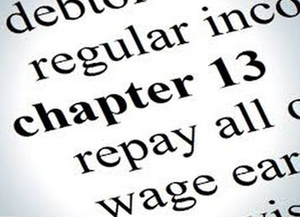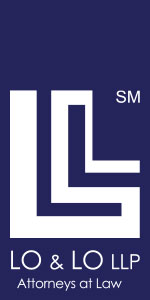Chapter 13
Chapter 13 involves a repayment plan. The court must approve your repayment plan and your budget. Chapter 13 is a valuable tool that lets you catch up overdue mortgage or car payments, taxes and domestic support obligations. It also applies where you have the ability to repay some or all of your debts over time. You must have less than $360,475 in unsecured debt (such as credit cards and doctor’s bills) and less than $1,081,400 in secured debt (such as mortgages and car loans) to qualify for Chapter 13. These numbers are applicable from April 1, 2010 thru March 31, 2013, adjustable every 3 years by CPI.
 Under Chapter 13, you keep all of your property, both exempt and non-exempt, as long as you resume making your regular payments on secured debt and keep current under the repayment plan that you propose. Your total payment to unsecured creditors, though, must equal or exceed the total value of your non-exempt property when compares to a chapter 7 liquidation.
Under Chapter 13, you keep all of your property, both exempt and non-exempt, as long as you resume making your regular payments on secured debt and keep current under the repayment plan that you propose. Your total payment to unsecured creditors, though, must equal or exceed the total value of your non-exempt property when compares to a chapter 7 liquidation.
In certain circumstances it may be possible to reduce a car payment. A repayment plan can last for up to five years. After finishing your payments, most of your unsecured debts are discharged.
The filing fee for a Chapter 13 is $274.00. In most cases, once you file your case, the “Automatic Stay” immediately goes into effect. The Automatic Stay means that a bankruptcy filing automatically stops, or stays, and brings to a halt most lawsuits, repossessions, foreclosures, evictions, garnishments, attachments, utility shut-offs, and debt collection harassment. Generally, creditors cannot take any further action against you or your property without permission from the Bankruptcy Court.
In a foreclosure situation, if your desire is to keep your home, Chapter 13 is preferable to Chapter 7 because Chapter 13 allows you to catch up your arrears (overdue payments). As long as you keep up with the plan payments AND post-petition mortgage payments, lenders will not be able to obtain an order lifting the automatic stay and continue with the foreclosure proceeding.
In a Chapter 7 situation, even though there is an automatic stay in place, lenders will still be able to bring a motion to lift the stay and continue with the foreclosure proceeding.
Other benefits of Chapter 13:
Lien strip a junior mortgage: If the value of your home is less than the principal balance you owed on the first mortgage, you will be able to strip off the second or third mortgage, reduce them to the status of unsecured creditor, and discharge the lien when the plan is completed.
Cram down a car loan: It is possible to negotiate with the lender to reduce the car loan to fair market value of the car and reduce the interest rate to reasonable rate, then reaffirm the car loan.
Super discharge certain debts: Certain debts not dischargeable in Chapter 7, such as an intentional tort debt or a debt incurred by fraud, can be discharged in Chapter 13.
Co-debtor stay: 11 U.S.C. Section 1301 prevents a creditor from pursuing a co-debtor on a consumer debt so long as the debtor propose in his/her Chapter 13 plan to pay the cosigned debt in full.
Control sale of property: 11 U.S.C. Section 1303 provides the debtor, not the trustee, the right to sell property under Section 363 of the Code. Debtor could liquidate property in a manner and at a time most advantageous to the debtor.
Operation of business: For a debtor operating a sole proprietorship business, Chapter 13 permits the debtor to continue with the business.
There are other benefits depending on your individual situations. Please call us for a free consultation.
